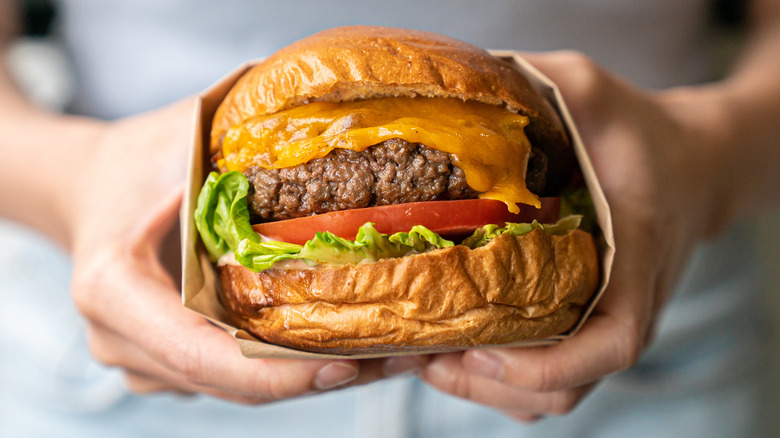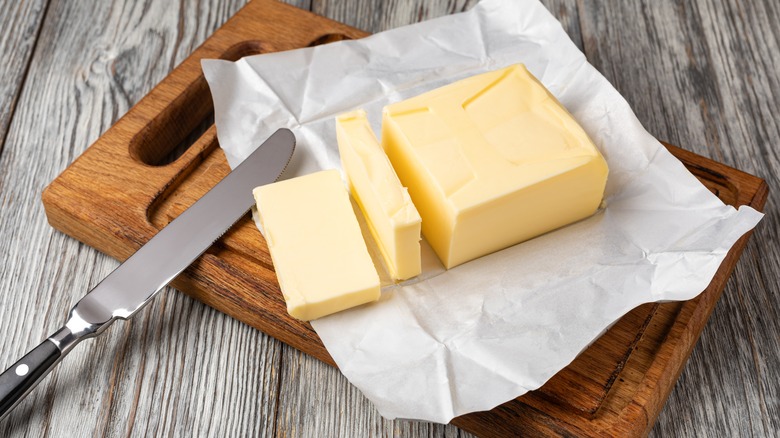Never Eat Dry Burgers Again: The Butter Hack For The Juiciest Patties
There are many factors to consider when making burgers, from properly layering on condiments to the absolute best cheese to melt on top. In terms of jazzing up your patties, less is typically more, and certain extra ingredients should never be added to burger meat. However, one dairy staple should most definitely be incorporated: cold butter. For the 411 on this buttery hack, Food Republic reached out to Chef Mark Enciso, founder and owner at Order Fire Barbecue.
While many cooks simply place butter on top of a hamburger patty when cooking, Enciso uses a more effective approach. "Grating cold butter into burger patties creates tiny pockets that melt during cooking, basting the meat from within," he explained. "... [These] internal butter pockets create juiciness throughout the patty and enhance flavor distribution in every bite." The technique will help ensure you never eat a dry burger again (at least, not in your own kitchen). For best results, try freezing your butter, then coarsely grate it onto your burger — this will provide an ideal texture over butter at room temperature.
The kind of butter you use will also make a difference. The richest results are achieved with a European-style product that has high butterfat — between 82% and 86%, per Enciso. Standard butter sourced in America typically contains only 80% butterfat. Using butter with no added salt is also advised. "Unsalted gives you better control over seasoning, while cultured butter adds subtle tangy notes that complement beef's natural flavor," the expert shared.
How to properly execute this buttery burger hack
When incorporating butter into your hamburger patties, Mark Enciso recommends using approximately 1-2 tablespoons for each pound of meat. Using more can result in overly greasy burgers that will shrink too much when cooked. The butter should also be evenly distributed throughout your beef, but not over-blended. It's important to retain those defined chunks of the product so they'll melt and moisten the patty. "Mix with a light touch just until incorporated," the expert advised. "[Overworking] makes burgers tough and causes butter to melt prematurely from hand heat." Home cooks tend to overhandle hamburger patties in general, packing them too tightly. This leads to dry, toughened burgers, which is the opposite of what you're aiming for. You want your meat to be only loosely formed so it retains its natural juices while cooking. Along with the aid of butter, this will help churn out burgers that are moist and tender.
Chill factor is also important. Frozen butter is best for optimum results, as it maximally slows down pre-cook melting. Similarly, your beef patties should take a trip into the refrigerator once they're formed. This not only helps patties retain their shape, but it further aids in keeping the butter from prematurely melting. When adding spices and additional elements to your beef, consider what the butter itself is already bringing to the table. If you have opted for a salted butter, for instance, that needs to be factored in before adding more seasonings to avoid over-salting.


